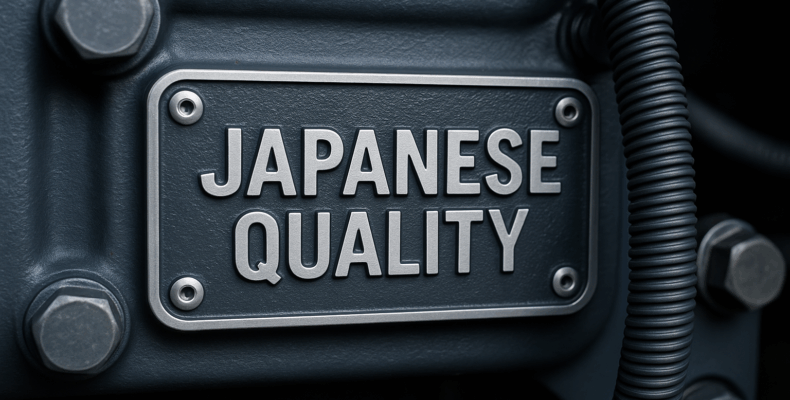When buyers around the world search for used trucks, buses, or construction machinery, the phrase “Japanese Quality” consistently comes up. But what exactly makes Japanese exports stand out? From strict maintenance practices to cutting-edge manufacturing, Japan has become the benchmark for reliability and excellence in the global vehicle trade.
Built to Last: Why Durability Matters
Japanese commercial vehicles are known for their exceptional durability. Brands like HINO, ISUZU, MITSUBISHI FUSO, and TOYOTA design trucks that perform efficiently for decades, even in harsh conditions. For construction firms in Africa, logistics companies in Southeast Asia, or agricultural operators in Latin America, this durability translates into long-term cost savings.
Because of Japan’s rigorous vehicle inspection laws, most trucks are well-maintained and regularly serviced. As a result, used units entering the export market often have low mileage, minimal wear, and full maintenance records.
Precision Engineering with Global Impact
Japanese manufacturing emphasizes precision, innovation, and consistency. Each part is designed to fit seamlessly and operate efficiently. Whether it’s the fuel system, the engine block, or the transmission, these components function together with remarkable harmony.
This engineering excellence ensures that exported vehicles continue to operate reliably in different regions, from tropical climates to mountainous terrains. Not only does this support uptime, but it also enhances safety and fuel efficiency for buyers worldwide.
Strict Standards = Global Trust
Unlike many other countries, Japan enforces very strict roadworthiness inspections (known as “Shaken”) every few years. Because of this, many owners replace their vehicles early—even when the trucks are still in excellent condition.
That’s great news for international buyers. They receive trucks that are mechanically sound and often fitted with modern features like air brakes, turbo diesel engines, and safety monitoring systems.
Trusted Exporters Ensure Peace of Mind
To truly benefit from Japanese quality, buyers must choose reliable exporters. Thankfully, there are well-established professionals in Japan who specialize in exporting used trucks, buses, and heavy machinery.
We highly recommend checking out the following article to explore the top companies in this field:
👉 Top 5 Trusted Japanese Used Truck Exporters for Global Buyers
These trusted names include:
-
EVERY Co Ltd
-
SBT Japan
-
Royal Trading
-
Mumtaz International
-
AGASTA Co Ltd
Each of these companies has a proven track record of transparent service, quick shipping, and customer-first support.
Adaptability for Global Markets
Another key strength of Japanese vehicles is their versatility. A Japanese bus can be converted into a mobile clinic. A dump truck can be easily adapted for mining. This adaptability, combined with quality, makes Japanese vehicles highly attractive for exporters, NGOs, governments, and private buyers.
Moreover, with standardized parts, repairs and maintenance are simpler—even in remote regions. That means less downtime and more efficiency for businesses.
Conclusion: More Than Just a Vehicle
“Japanese Quality” is more than a marketing phrase. It reflects a national culture of excellence, discipline, and innovation. Whether you’re running a bus company in Kenya, a construction project in the Philippines, or a logistics fleet in the Caribbean, investing in Japanese machinery ensures value, performance, and peace of mind.
So if you’re looking to start or grow your fleet, choose Japanese exports—where quality meets trust.
